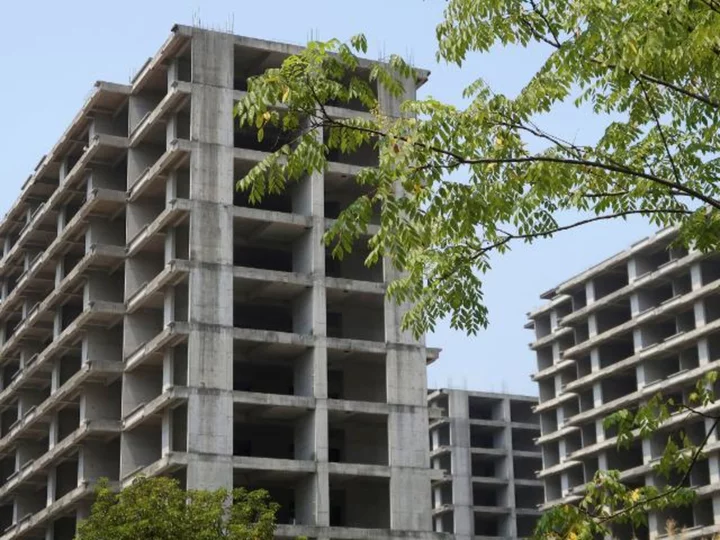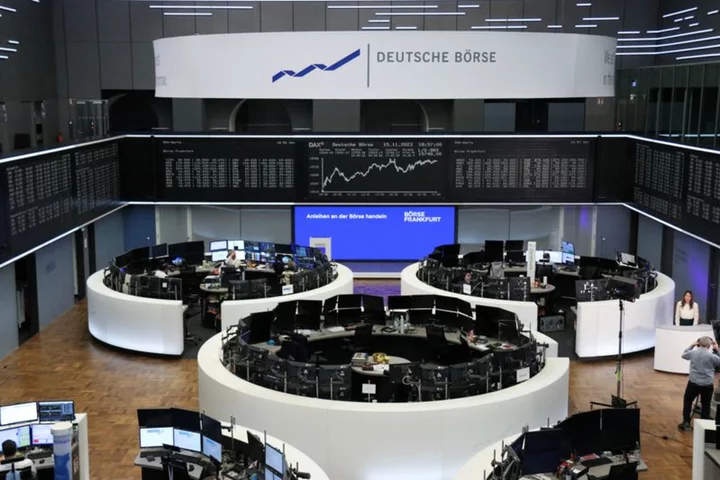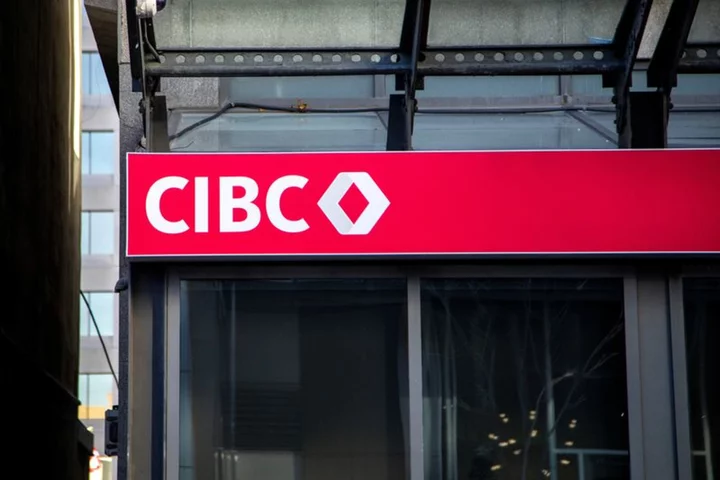Plunging sales of new homes and the reported cancellation of a share placement by China's biggest property developer on Tuesday underscored the depth of the country's real estate crisis.
Reports that Country Garden had abruptly pulled an attempt to raise $300 million by issuing new shares in Hong Kong coincided with the release of data late Monday showing new home sales by China's 100 biggest developers dropped by 33% in July from a year ago.
"No definitive agreement has been entered into with respect to the proposed transaction and the company is not considering the proposed transaction at this stage," Country Garden said in a statement. Its shares fell as much as 11% on the Hong Kong stock exchange. They were last down 7%.
The drop in new home sales in China is the steepest monthly decline since July 2022. For the first seven months of this year, new home sales by the 100 developers fell 4.7% from a year earlier.
"Overall, the current market demand and purchasing power are overdrawn, and industry confidence is still at a low level," the China Real Estate Information Corp. — a leading industry data provider — said in a statement.
China's huge property industry was long an important engine of economic growth, accounting for as much as 30% of the country's GDP. Investors see the revival of the sector as crucial to the recovery of the world's second largest economy following three years of self-imposed coronavirus pandemic isolation.
"Recent signals from top policymakers... suggest Beijing is getting increasingly worried about growth and have clearly recognized the need to bolster the faltering property sector," said Nomura analysts on Monday.
"They are starting a new round [of] property easing, and may introduce some stimulus to redevelop old districts of large cities."
Premier Li Qiang pledged Monday to "adjust and optimize" policies to ensure the healthy and stable development of the property market, according to a readout from a State Council meeting. Cities should roll out measures that meet their own needs, he added, without elaborating on the details.
Four of the biggest cities in China said they would introduce measures to boost local property markets, also without announcing specific new policies.
Shanghai's housing regulator said Monday it would implement the pledges of the top policymakers. Guangzhou, Shenzhen, and Beijing also made similar statements over the weekend.
"So far these steps are still far from enough to stem the downward spiral of the property sector, in our view," Nomura analysts said, adding that there is no clear policy roadmap to boost the sector at a time of slow growth in household income, weak confidence about the future and a shrinking population.
Chinese households have grown reluctant to purchase new homes, as the now-defunct Covid curbs, falling home prices and rising unemployment have discouraged would-be buyers.
A series of major defaults by property giants in 2021 also undermined confidence in the sector and led to many home buyers paying for apartments they never received, sparking protests.
As a result China's property industry has been mired in a historic downturn in the past two years.
New home prices had fallen for 16 straight months through last December. They stabilized earlier this year, but then resumed their decline in June, highlighting the challenges of reviving demand.
Last month, the People's Bank of China said it would give developers another 12 months to repay their outstanding loans due this year.
And late last year Beijing unveiled a 16-point plan to ease a liquidity crisis in the real estate sector. Key measures include allowing banks to extend maturing loans to developers and boosting other funding channels for property firms.









